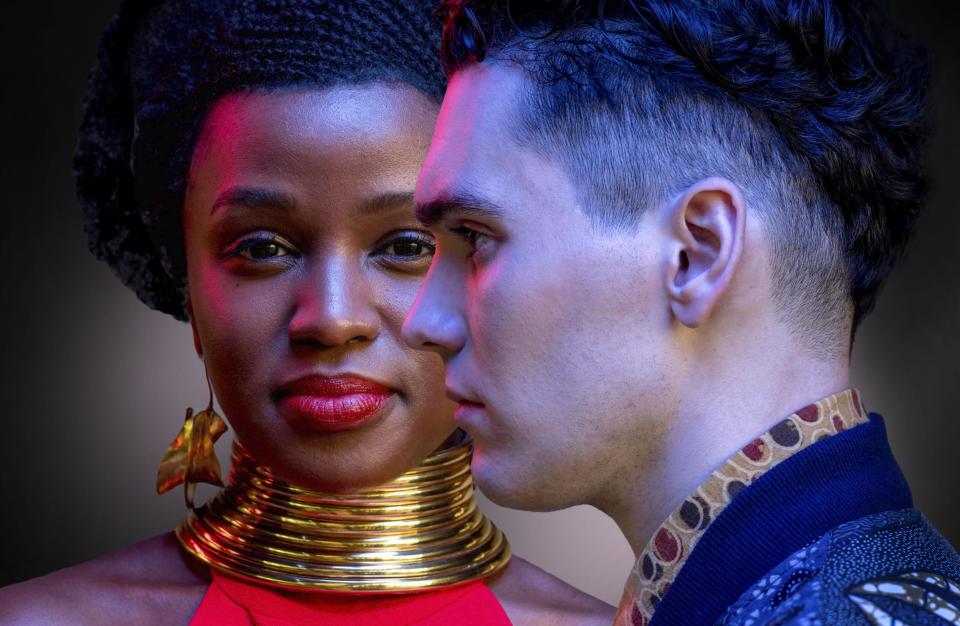Noughts + Crosses, review: This race-reversal drama will induce hernias in right-wing commentators

Centuries ago, imperialist nations embarked on a bold campaign of expansion, plundering the resources of foreign countries and introducing ruthless class systems resulting in the mass subjugation of native communities. Adapted from the young adult novels by Malorie Blackman, Noughts + Crosses (BBC1) offers an alternate reality in which history has been flipped and white European countries have been colonised by Africa, known here as “Aprica”. The series is set in the capital of “Albion” in which white people, or “noughts” (known pejoratively as “blankers”) are the underclass and black people (“crosses”) are the ruling elite.
At the centre of this tale is a Romeo and Juliet-style romance between Callum McGregor (Jack Rowan) and Sephy Hadley (Masali Baduza). The pair have known one another since childhood, as Callum’s mum, Meggie (Helen Baxendale), is housekeeper to Sephy’s wealthy family (her father, Kamal, played by Paterson Joseph, is home secretary). Since interracial relationships are forbidden, however, their love must remain a secret. Meanwhile, tensions bubble beneath the surface in Albion’s segregated society and spill into violence when two black police officers beat up a white boy, leaving him in a coma.
Noughts + Crosses’ premise of a society turned on its head is effective in its simplicity, while its highlighting of discrimination through the pinpricks of everyday infractions is smartly done. Here it’s white people who don’t get plasters to match their skin colour, and whose names are blithely mispronounced. Other inequalities weigh more heavily. In this fictionalised world, it’s black people who present and report television news, who attend university lectures and populate government.
Blackman’s story carries a potent message about representation and power structures, so it’s a shame that the dramatised version doesn’t always trust viewers to comprehend it. Sephy may represent a move towards compassion and tolerance, but her transformation here from blinkered college student to social justice campaigner takes roughly as long it takes to make a cup of tea. Her character, along with Callum’s, is meant to be the emotional heart of the piece but, in the early stages, she is thinly drawn.
That Noughts + Crosses is a book for teens being adapted for an adult audience may be part of the problem – nuance was never going to be on the cards. The budget, or lack of it, is also noticeable in the series’ more dramatic set-pieces. The opening episode sometimes has the feel of late-Noughties Doctor Who, both in the distinctive “BBC does dystopia” aesthetic (barbed wire! Graffiti! Peeling paint!) and where solemn talk of social unrest amounts to a bit of pushing and shoving outside a hospital.
Nonetheless, we shouldn’t underestimate the rarity of seeing a garden party full of people of colour knocking back champagne in posh clobber, or just hanging out in nice houses, irrespective of the context. More pointedly, Noughts + Crosses’ existence feels apt at a time in which racist discourse is increasingly normalised in the shadow of Trump and Brexit. And is it bad to take pleasure in the hernias it will induce in certain right-wing, BBC-bashing commentators? This is a series that asks important questions of its white audience, chief among them: what if it was you?

 Yahoo News
Yahoo News 